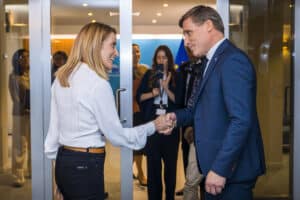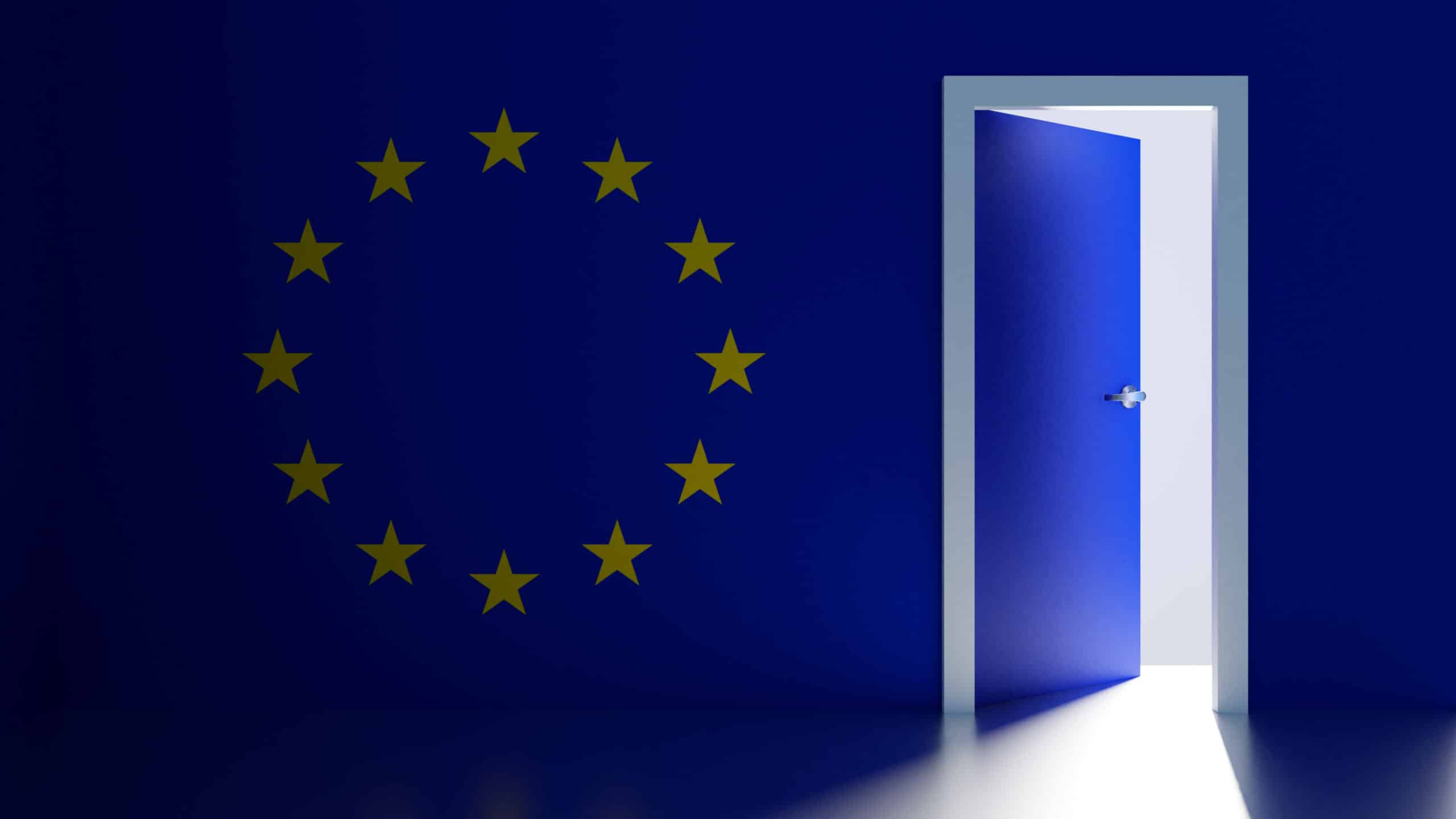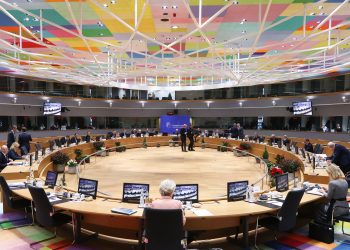Brussels – A crucial new year begins for EU enlargement, which,
after the decisions of the last European Council in December 2023,
is about to take on somewhat more defined contours thanks to the
first EU institution that will concretely open its doors to new
candidates for EU membership. The European Economic and Social
Committee (EESC) has issued an invitation to civil society in the
nine countries on this path to apply to become “Enlargement
Candidate Members” and contribute to the Committee’s
consultative work in 2024.

“Geopolitics has re-emerged as an existential issue in the political
agenda; the EU must live up to the task ahead: the time has come for
its geopolitical awakening” is the exhortation of the president of the
EESC, Oliver Röpke, outlining the developments of what last year
was anticipated as the “Honorary Members of Enlargement Initiative”.
The idea is to include new honorary members from civil society
for each candidate country in the process of drafting EESC
opinions: from energy to labor and social rights, from digital and
green transition to industrial policy, sustainable development and
the single market. The nine EU candidate countries—Albania,
Bosnia and Herzegovina, Georgia, North Macedonia, Moldova,
Montenegro, Serbia, Turkey, and Ukraine—would be involved, while
Kosovo (which applied for membership in December 2022) would
not be included for now. Speaking to Eunews, President Röpke did
not rule out “closer cooperation” with Pristina, despite the fact that
for the initiative “we have decided to stick to the Council’s decisions
on candidate status.”
Civil society organizations from the nine candidate countries can
apply until January 25 (here is the link). In the selection process,
the level of participation in national civil and social dialogue and
international networks, adherence to the EU values enshrined in
Article 2 of the Treaty on European Union (human dignity, freedom,
democracy, equality, rule of law, and respect for human rights,
including minority rights), gender equality, youth representativity
and knowledge of at least one of the official languages of the Union
will be considered. After selecting the pool of 21 members for
Ukraine and Turkey and 15 for the other countries, participation
will be extended to the entire cycle of opinions (study groups, section
meetings and plenary sessions), with an annual plenary specifically
on enlargement issues. “This innovative initiative makes the ESSC
the first EU body to progressively integrate representatives of the
enlargement countries into its activities,” claimed President Röpke,
explaining the aim of the pilot project for this year (to be reassessed
in December).
Where does EU enlargement stand
Of the six Western Balkan countries on the path to EU enlargement,
four have already begun accession negotiations (Albania, North
Macedonia, Montenegro, and Serbia), one has received candidate
status(Bosnia and Herzegovina-), and the last has formally applied for
and is awaiting the response of the Twenty-Seven (Kosovo). For
Tirana and Skopje negotiations began in July last year, after waiting
8 and 17 years, respectively, while Podgorica and Belgrade have
been at this stage for 11 and 9 years, respectively. After six years
since applying for EU membership, also Sarajevo became a
candidate to join the Union on December 15, 2022, and the last
European Council in December decided that accession negotiations
could be opened “once the necessary degree of compliance with the
membership criteria has been achieved.” Pristina is in the most
complicated position after the formal request was sent at the end of
last year: since its unilateral declaration of independence from
Belgrade in 2008, five EU member states—Cyprus, Greece, Romania,
Spain, and Slovakia—are still not recognising it as a sovereign state.
The upheaval in EU enlargement began four days after the Russian
armed aggression when, amid the war, Ukraine applied for
“immediate” membership in the Union, with the application signed
on February 28, 2022, by President Zelensky. Demonstrating the
irreversibility of a process of rapprochement with Brussels as a
clear reaction to the risk of seeing its independence from
Moscow erased, three days later (March 3), Georgia and Moldova
also decided to take the same path. The European Council of
June 23, 2022, approved the line drawn by the commission in its
recommendation: Kiev and Chișinău became the sixth and seventh
candidates for EU membership, while Tbilisi was recognized as having
a European perspective in the EU enlargement process. Again following
the recommendation contained in the EU Enlargement Package,
the December 14-15, 2023 summit of EU leaders decided to start
accession negotiations with Ukraine and Moldova and grant
Georgia candidate status.
Negotiations for Turkey‘s accession
to the European Union, on the other hand, were launched in 2005,
but have been frozen now since 2018 due to backward steps on
democracy, rule of law, fundamental rights, and independence of the
judiciary. In the chapter on Turkey of the latest annual Enlargement
Package presented in October 2022, it was put into writing that
it “does not reverse course and continues to move away from the EU
positions on the rule of law, increasing tensions over respect for borders
in the Eastern Mediterranean.” At the NATO summit in Vilnius at the
end of June, the Turkish president, Recep Tayyip Erdoğan, tried to
force his hand, menacing that he would bind Sweden’s membership
in the Atlantic Alliance to Brussels opening Turkey’s path back to
the EU. The blackmail failed, but the dossier on Ankara was addressed
in a specific strategic report to Brussels.
English version by the Translation Service of Withub






